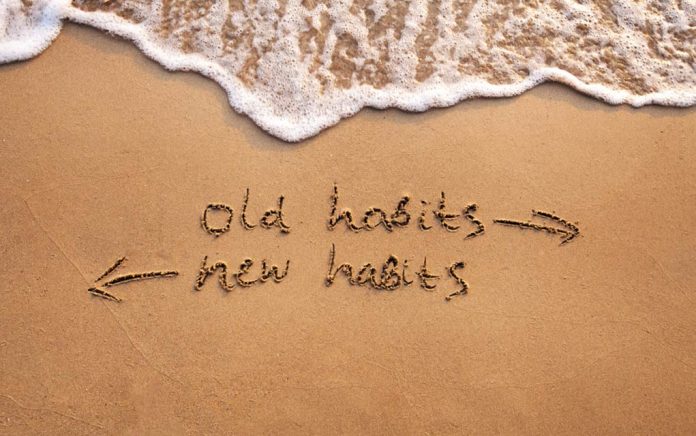
(DailyVibe) – We all have bad habits we’d like to break, but habit implies comfort and repetition. Breaking a habit isn’t as easy as declaring that we’ll do it. It takes as much practice to break one as it does to start one in the first place.
Let’s take a look at these science-backed hacks to help us break any habit.
Determine Why You Want to Quit
Having a good reason for why we want to break the habit is important. This determines our motivation. If our goal is simply an external reward, we may not be as motivated. When we have internal motivation, we tend to be more focused on changing our behaviors.
For instance, when we want to lose weight because of other people’s perceptions, we won’t be as motivated to exercise more or examine our nutrition. When we decide we want to lose weight for health reasons, to improve the way we feel, and/or to lower our stress, we may find these stronger motivators. While accountability with others can help us stay the course, it’s important that we have deeply personal motivations to make any changes.
It’s important that our why be personal to us and based on our own life values.
Set Specific, Measurable Goals
Setting goals is great, but if they aren’t specific and measurable, we may not follow through with them. Smaller, measurable goals are more successful than general ones. Our brains more readily adapt to smaller steps as we make changes.
Think small, specific, and measurable. When we set our goals this way, we have easy markers of achievement.
Celebrate Incremental Progress
Setting a reward system to anticipate as we work toward correcting a bad habit can give us a dopamine boost that makes success more likely according to researchers. Giving ourselves a small treat when we make progress can help keep us motivated.
Recognize Triggers
Bad habits are often triggered by stressors. They can also be triggered by certain people or environments. By paying attention to when we engage in bad habits, we can learn to recognize our own triggers.
This is key in addiction recovery, as well. Recovering addicts learn to avoid the people, places, and even things that are linked to the addiction. While we can’t always avoid the triggers, we can learn to recognize and manage them.
Set Reasonable Expectations.
When our expectations aren’t reasonable, we set ourselves up for disappointment–making discouragement a more likely result of our efforts. But realistic expectations can help us stay motivated.
For instance, if we want to lose two pounds a week, we may have a chance of doing so successfully by paying attention to our diet and exercise. Losing twenty pounds a week is far less likely–and won’t be healthy or sustainable.
Manage Stress Better
Coping skills and better stress resilience are linked to successfully breaking bad habits. Managing stress can involve getting more sleep, taking breaks, meditating, and practicing regular self-care. By managing our stress, we are better able to handle triggers as they come up and to stay motivated in our goal of ending our bad habit for good.
Replace the Bad Habit with a Good One
Researchers have found that habits are formed through repetition–good ones as well as bad ones. In order to more successfully end a bad habit, consider starting a better one in its place.
If we want to stop snacking in the evening before bed, we may want to replace this behavior with something as simple as drinking more water or doing a short, guided meditation. Determining a reasonable replacement can help us increase the likelihood of stopping the bad habit.
Breaking bad habits won’t be easy, but with these science-backed hacks, we can make the changes we want for our lives. Consider putting up a vision board or posting up reminders to help with daily motivation. Calendar reminders and apps can also help assist us with managing goals.
The most important factor–outside of our own motivation–will be the consistency with which we attempt to change our bad habits into better ones.
Copyright 2020, DailyVibe.com
















